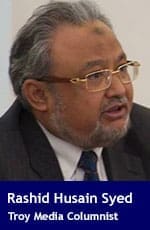OPEC+ meeting postponement reveals dispute among members over oil market future

The upcoming OPEC+ meeting scheduled for Nov. 30 is the current focal point of interest in the oil markets. The results of this meeting will have a pivotal impact on determining oil prices in its immediate aftermath. The recent postponement of the meeting from Nov. 26 to the 30 underscores a notable disagreement among oil-producing nations regarding output quotas for the upcoming year. The disagreement presents a key challenge for OPEC+.
Last Wednesday, OPEC+ surprised the market by advancing the meeting by four days, leading to a drop in oil prices. Reports later revealed that African OPEC+ members, including Angola, Nigeria, and Congo, have advocated for higher production limits in the coming year. Since OPEC+ couldn’t reach a consensus on this matter, the meeting had to be postponed for a few days.
In June, these African OPEC+ producers, who were already producing below their output quotas, were compelled to commit to even lower oil production levels for 2024. For instance, Nigeria’s quota for 2024 was reduced from 1.742 million barrels per day (bpd) to 1.380 million bpd, Angola’s from 1.455 million bpd to 1.280 million bpd, and Congo’s from 0.310 million bpd to 0.276 million bpd.
Simultaneously, OPEC+ granted the UAE permission to increase its output quota from 3.019 million bpd to 3.219 million bpd in 2024. The UAE, which had invested significantly to boost its oil production capacity to five million bpd by 2027, up from its current four million bpd, was frustrated by its inability to utilize its capacity fully while other OPEC members struggled to meet their output quotas. This led the African OPEC members to insist on raising their output quotas to rectify the situation.
Increasing the quotas of African OPEC members despite weak market fundamentals contradicts the prevailing sentiment that OPEC+ should further reduce output to balance the markets. Saudi Arabia has already borne the brunt of OPEC output cuts, reducing its output by 1.87 million bpd year-on-year, accounting for nearly 83 percent of the total OPEC output cut. Saudi Arabia appears reluctant to make more substantial cuts.
However, recent media reports suggest that OPEC is nearing a resolution to the dispute with its African oil-producing members. Citing three OPEC+ sources, a Reuters report indicates progress in the talks, with a strong belief that an agreement will be reached during the upcoming meeting. Bloomberg also reports that OPEC+ is close to resolving the dispute over output quotas.
As the Nov. 30 meeting approaches, expectations have shifted. Before the delay, many analysts anticipated that, due to declining oil prices and the usual slump in oil demand in the first quarter of each year, OPEC’s leading producers, Saudi Arabia and Russia, would extend their voluntary output cuts into 2024. Some even speculated that OPEC+ might announce even deeper cuts.
With volatile markets and downward price pressure, OPEC+ may feel compelled to act swiftly to stabilize the situation despite limited options. It appears that, despite Saudi Arabia’s reservations, it may have to shoulder a greater burden of the overall OPEC+ output cut to prevent market chaos.
Watching OPEC+’s upcoming actions in the global energy arena will be interesting, to say the least.
Toronto-based Rashid Husain Syed is a highly-regarded analyst specializing in energy and politics, with a particular emphasis on the Middle East. Besides his contributions to both local and international newspapers, Rashid frequently lends his expertise as a speaker at global conferences. His insights on global energy matters have been sought after by organizations such as the Department of Energy in Washington and the International Energy Agency in Paris.
For interview requests, click here.
The opinions expressed by our columnists and contributors are theirs alone and do not inherently or expressly reflect the views of our publication.
© Troy Media
Troy Media is an editorial content provider to media outlets and its own hosted community news outlets across Canada.


